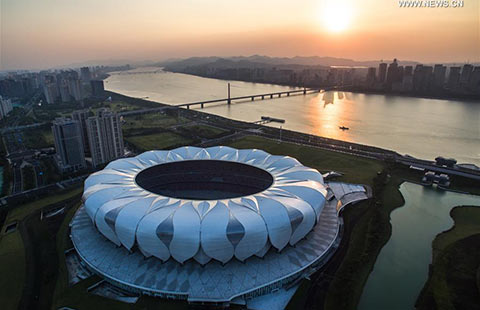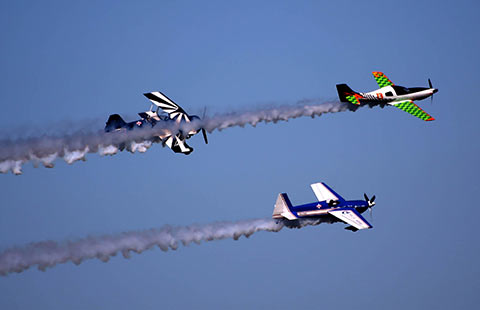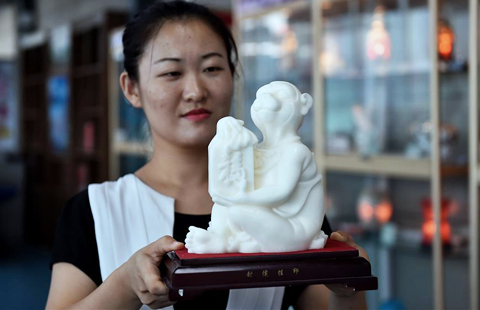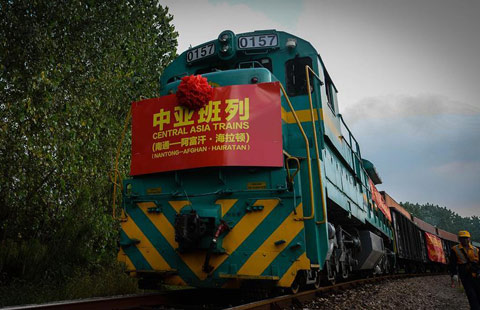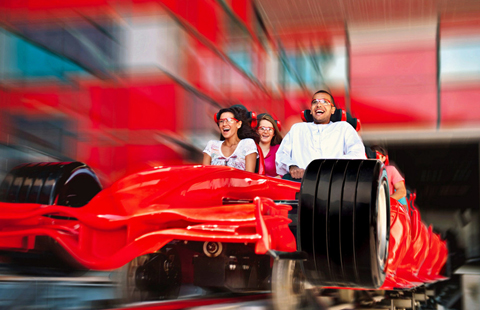A global power in fitness equipment manufacturing
By Zhao Yanrong (China Daily) Updated: 2013-01-12 08:57
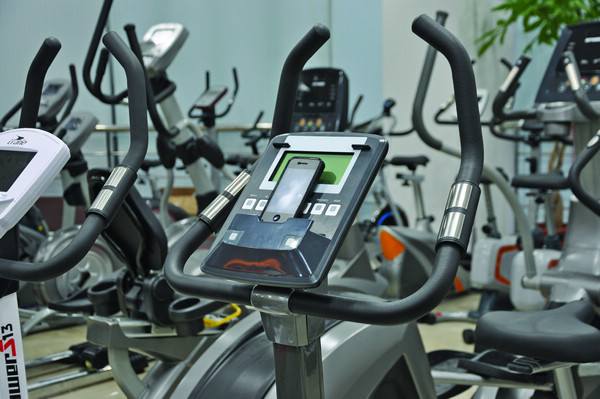 |
|
An elliptical trainer on which consumers can use their Apple products, made by Xiamen-based fitness equipment manufacturer K-power. [Photo/China Daily] |
If you are exercising on a machine to improve your physique while reading this, the chances are it was probably made in Xiamen.
Many people know Xiamen for its exotic foods, great architecture and mild climate. In the past decade, it has been ranked as China's "most suitable" city to live in and as its most romantic. But under this relaxed, leisurely charm on the surface beats a strong industrial pulse, pumping its way to economic success.
The manufacture of fitness equipment is Xiamen's forte. The city is a global power in the field, with one in every three treadmills in the world made in the East China coastal city, and shows no sign of running out of steam, if Xiamen city government data are anything to go by.
Xiamen, the second-largest city in Fujian province, was one of the original four Special Economic Zones set up on the Chinese mainland during the early 1980s, and received heavy investment initially from Taiwan and Hong Kong entrepreneurs.
China produces up to 60 percent of the world's fitness equipment, most of it from Xiamen, home to more than 80 fitness equipment enterprises and 500 sporting goods-related factories.
In 2011, the city's manufacturers accounted for up to $650 million worth of fitness equipment exports, a quarter of China's total exports of fitness products, and an annual increase of 30 percent, according to the Xiamen entry-exit inspection and quarantine bureau.
The development of the industry in Xiamen is based on earlier business links with Taiwan, only a short distance away across the Straits. Taiwan's close economic relationship with the United States then provided opportunities to many entrepreneurs on the island.
The US, which generates 40 percent of the total market demand, is still the biggest fitness equipment consumer.
When costs increased in Taiwan a decade ago, many factories and businesses started moving to cities in the mainland. Xiamen, which shares the same dialect, a similar climate and a good transportation system, has attracted most investments, and perhaps more importantly, the leading high-tech experience and standards set by manufacturers in Taiwan.
Many related businesses also gathered in the city, attracted by the growing industry.
When profit margins in fitness equipment exports shrunk following the world financial crisis in 2008, and other manufacturing bases in Zhejiang were losing money, entrepreneurs from Xiamen were able to stay above water with their high-quality products and muscled their way to the fore.
The Xiamen government played a big part in supporting the development of the fitness equipment sector.
Among six Xiamen administrative districts, Tong'an district recently approved the setting up of an "exported fitness equipment quality and safety demonstration area" for its well-developed cluster of manufacturers. Tong'an alone contributes about 10 percent of China's total fitness equipment exports.
"We are the link between local companies and foreign markets, so we can better understand the business policies in overseas markets as well as the manufacturing situation in local factories," said Fang Zhijie, deputy director at the Tong'an branch of the Xiamen entry-exit inspection and quarantine bureau.
- Fitness club finds healthy way to retain members
- Inner Mongolia hosts Fitness Fair and Horse Racing Festival
- National Fitness Day celebrated around China
- Olympic fever boosts fitness clubs' business
- Exercise video games fail to improve fitness
- China to monitor students' fitness nationwide
- More Chinese go gym for fitness
- College students to be tested on fitness
- Chinese company praised for social responsibility toward Togo youth
- China's crude oil output down in July
- China aims to reduce logistics costs
- Designers interpret connotation of logo of G20 Hangzhou summit
- Full, fair competition in China's telecom industry
- Reforms of Mexico, China set good example for world
- Foreign diplomats optimistic about energy cooperation with China
- Expert calls for long-term blueprint for China's AI industry


